Why you should never pay your child for chores!
When your kids become old enough (and responsible enough) for an allowance, a parent is faced with two choices – should the allowance be handed over unconditionally or should the kids perform some chores in return.
Akriti came to us with this query. Should she pay her children to help our with chores at home? Will this help them learn the value of money?
Our star contributer Noopur Agarwal advises, “While it’s important to teach children the value of money, it is not right to pay them for doing small things. If you will start paying them for every chore, they will loose their innocence and will become money minded like us grownups!”
This is a line of thought that is generally agreed upon by most parents – and even some financial experts! Finance gurus say that if the kids learn that by working they get paid, on the flip side they will also learn that they can refuse to work on the grounds that they don’t want money! What’s more if they save their “earnings”, they may even realise that they have enough of their allowance to last them for a few days – and hence flat out refuse to do chores!
On the whole there are three major reasons why you should never pay your kids for their chores:
1. It sends the wrong message!
If kids are being paid to complete chores, they will no longer feel the need to do any chores “for free”. What’s more, they will learn to demand payment for any small favour or request. It takes away from the sense of achievement and moral obligation of caring for the home and doing what’s best for the whole family.
2. It could lead to a sense of entitlement!
When a child is paid for her work, she no longer thinks of his family as a cohesive unit – she will start thinking of herself first! Your goal is to foster an environment of family teamwork and not “every man for himself”.
3. They will ask for a raise!
Don’t you start resenting your boss when he doesn’t give you a raise despite how much work he sees you putting in day in and day out? Well now, is that a situation you want happening with your kids? Just imagine: “Mommy, I did more dishes this week than last week – so I deserve more money!” Now isn’t that a situation you want to avoid?
We hope our Mommy advice has helped Akriti find a solution. There are many other ways to present your kids with an allowance, and payment in return for services is not always the right decision!
We thank the SOS mom who came to Anamika’s rescue: Noopur Agarwal.
When Baby Teeth Don’t Fall Out
“Mommy, my tooth is loose!”
Every Mom with a 5-6 year old expects to hear this statement! But what happens when your little one’s teeth are still rock steady? When all of your daughters friends have begun losing milk teeth, and your angel’s teeth are still in place – should you be worried?
Mom Anita came to us worried about her daughter’s dental health. Her precocious 6 year old’s milk teeth show no signs of making way for permanent teeth! When all of her friends are proudly showing off gaps in their smiles, she is the odd one out! Anita is worried that her daughter isn’t developing the way she should and asked the FirstCry Mommies for their help!
Priyanka Pareek says that it is completely normal for a child to retain her milk teeth at 6 years of age! The general rule is that the younger your child is when her teeth come in, the earlier they will fall out! Some children lose their first tooth as early as 4 years of age or even as late as 7 years.
Noopur Agarwal agrees. She says, “Don’t worry at all my daughter is about to be 7 and her first teeth just fell out a few days ago!” There is probably nothing wrong – as some kids even reach the age of 8 years before losing a tooth!
Kaveri Arora Wadhwa advices that Anita should definitely consult both the pediatrician and the dentist – since the issue has her so worried! Get an X-ray done at the dentist’s to make sure there are no underlying problems!
Robe Samarth Gaonkar says, “You have to worry if her teeth are damaged in any way. Tooth decay is more important than worrying about something like baby teeth not falling out, which is not so important in the long run.”
Dooradarsini Sonita meanwhile recommends a healthy dose of calcium to ensure better tooth health!
 We hope our Mommy advice has helped Anita find peace – as the baby tooth problem is one that will easily resolve itself in a matter of time!
We hope our Mommy advice has helped Anita find peace – as the baby tooth problem is one that will easily resolve itself in a matter of time!
We thank all the SOS moms who came to Anita’s rescue:
Priyanka Pareek, Noopur Agarwal, Kaveri Arora Wadhwa, Robe Samarth Gaonkar, Dooradarsini Sonita.
Change in Baby’s Complexion
When a baby is born, the new mom, dad and the close circle of relatives’ worlds shrink down to the baby’s movements, his goos and gaws, his appearance and inevitably the colour of his skin. Babies grow every second and rapid changes keep occurring in their bodies at cellular levels. Hence the change in the colour of the baby’s skin.
However, the baby’s skin colour is predetermined by his genes at the time of his birth and there is pretty much nothing a parent can do to change their baby’s skin colour. There are, however, temporary factors like health and environmental factors that can cause a change in the baby’s skin colour.
The baby’s complexion also depends on how many weeks old the baby is during birth. A premature baby will have a thinner skin rendering him a reddish complexion (read blood), some babies turn bluish when crying, some are born with hair that may or may not eventually fall off. A newborn’s skin colour may also change because he wasn’t born with sufficient pigments and may subsequently grow darker with increasing exposure to sun light.
New mom Kalyani came to us with a query about how her little one’s skin grew darker after a few days of birth and our SOS moms have their suggestions (and opinions) on the same.
Prerna Sharma and Shwetha Bhardwaj reccommend a coconut oil massage before the baby’s bath time. Nirupama Joseph recommends the same but with olive oil.
Chetana Suvarna Ganatra says, “We do not have the concept of slapping sunscreen on newborns which is such a shame. Considering the country’s geographical positioning, the climate is usually sunny and very warm. The tender skin of the baby needs to be protected with sunscreens all the time, even when indoors. Hope it helps.”
Anjana Saravanan and Nirupine Shetty all recommend besan (gram flour) during the baby’s bath time. Deea D Kshatriya adds a twist, “Mix besan with milk or malai, make a smooth paste and gently massage your baby before giving bath. It helps.” Jyoti Kapil Chawla suggests mixing milk to the bathing water as besan could get stuck to the baby’s skin if not washed off properly.
Namrata Lad Sharma has a whole new take on the subject, “Babies keep changing their colour due to more of RBC in their blood. Also due to exposure to the environment and decrease in birth weight as water goes off from the body. Complexion totally depends on the genes, there’s nothing you can do to change the complexion before or after birth. You can apply coconut oil for massage, it will smoothen the skin, do not worry about the complexion and enjoy the motherhood!”
Noopur Agarwal also adds, “ Babies often tend to change skin colour after birth and again go back to original colour after few months so there is nothing to worry about, but if you can still massage her with malai daily before bath, it could bring about a little change.”
With all the solid advice we hope Kalyani has found her solution. But, we also cannot but agree with moms like Brittany Zachariah who think doesn’t matter what colour your child’s skin is.
We thank all the SOS moms who came to Kalyani’s rescue:
Brittany Zachariah, Noopur Aggarwal, Namrata Lad Sharma, Anjana Saravanan, Nirupine Shetty, Chetana Suvarna, Prerna Sharama and Shwetha Bharadwaj.
When Baby Cries At Night
It’s night time and your baby has had a long day. He has played with his teddy bear, laughed with his Daddy and made a mess on the floor with all that he could lay his hands on. After so much activity, sleep time should be smooth sailing, right? Well, Moms know better! The problem of babies crying into the night is not a new one but definitely very distressing for moms.
When Rakhi was upset about her baby crying for hours every night, our SOS Moms not only helped allay her fears but also gave splendid solutions to her problem.
Mom Neha Gaurav perfectly identifies the possible reasons your baby could be crying at night (and yes, there are several!): “Generally during initial months some babies cries due to colic pain, reason of which is still not known. However there could be various other reasons also which makes them uncomfortable like hunger, overclothing, temperature difference of environment.” If the problem is colic pain, Neha suggests that drops like colicaid and neopeptine can work. Else, tried and tested solutions like rocking your baby, cuddling, or a good body massage before sleep time can do wonders.
While sleep time crying is normal in babies, there may sometimes be a need for medical advice. Shipra Vishwanath says that if nothing seems to be working, you may try either gripe water or 3-5 drops of “badishep arka”. She recommends administering this solution upto 3-4 times every day.
Did you know that the wrong clothing could also be a reason behind your baby’s crying? Chetana Suvarna Ganatra suggests moms to keep a check on whether their baby is getting over or under dressed. She corrects the common but erroneous perception that babies have to be in a warm condition, even if the current climate is already too warm. The little ones need to be dressed comfortably or else they are sure to get moody.
Sometimes, the trick behind a peaceful sleep-time for baby is very simple: let your baby sleep on their stomach! Mom Sandhya Lal has this interesting idea: “Sing a song that will soothe little one down. Or try and talk to the baby when she/he is sleeping on your stomach. Has always worked with both my babies.” After all, Mom’s comforting words can never fail!
So the next time you are worried about your baby crying, remember that she is still trying to come to terms with the BIG world. From over-stimulus to hunger to random moods, there are plenty of usually harmless reasons behind the crying. Just use the handy solutions given by our SOS Moms and remember, there’s nothing that Mommy cannot put right!
A big thank you to all the wonderful mommies who helped Rakhi out:
Shipra Vishwanath, Sandhya Lal, Chetana Suvarna Ganatra, Neha Gaurav
CONSTIPATION IN TODDLERS
Constipation is a very common concern among the moms of toddlers. Some of the common causes of constipation in toddlers are toilet anxiety, dehydration and diet. Swati’s two and half your old child has the problem and she came to SOS moms for their advice on the same. Let’s take a look at what our SOS moms have to say to Swati.
Moms Noopur Agarwal, Sowjanaya Kumar, Tanuja Karunakar, Anita Rankar, Shaveta Rahajan, Ritu Mishra Tripathi Sahrvani Aneel, Leena Parikh, Ameena Sayeed, Deepshikha Das, Sakshi Batra, Tanushree Ganguli and Sayonee Mishra all agree that Swati’s little one should be given ripe bananas and papaya in different forms to ease his problem. Both banana and papaya are rich in fibre and can help with constipation. These two fruits can also be given in the form of milk shakes, juice and any other form to make them seem less boring to your active bub.
Also moms like Tanushree Ganguli, Jyoti Kapil, Mridula Shirwali, agree that spinach and greens will help Swati’s child to a great extent.
Moms Sneha Satam, Sathya Ramu, Srividya Mushunuru suggest Swati to feed that the child should be fed black raisins soaked in water every morning. Chetana Suvarana Ganatara suggests that a porridge made of oats and prunes (packed with fibre) will help. Shanti Gupta says dried figs soaked in water overnight will also work wonders.
Preeti Khanna and Manasi Joshi suggest that the little one should be given milk with two drops of ghee in it. Milk may cause constipation but milk with ghee has a reverse impact. Sweta Bharadwaj, Sonia Sonu pipe in with their suggestion of feeding the tot with curd regularly.
Diana Samuel says, “Try 1/2 tsp honey in 1/2 tsp warm water on empty stomach in the morning. It worked for my child when she had severe constipation. Note: water must be warm not too hot nor cold. Give him lots of warm water throughout the day. Hope it might help.” Harsha Rajiv suggests, “ Water intake should be increased. Fruit juice, fresh fruits in puree form is also effective. Fibrous food like palak and other greens in soup can be given. Also Palak kichdi, carrot soup, carrot milkshake etc work. Do include greens in your baby’s diet at least once a week.
Other SOS moms also agree that Swati’s little one should be given warm water throughout the day in equal intervals. Also the child should be made to sit on his potty seat everyday even if he doesn’t pass stool to build a habit. Constipation can be easily resolved with a few key changes in diet and momma’s care of course!
We thank all the SOS moms who rushed in to aid Swati with her problem:
Tanushree Ganguli, Jyoti Kapil, Mridula Shirwali, Noopur Agarwal, Sowjanaya Kumar, Tanuja Karunakar, Anita Rankar, Shaveta Rahajan, Ritu Mishra Tripathi, Sahrvani Aneel, Leena Parikh, Ameena Sayeed, Deepshikha Das, Sakshi Batra, Tanushree Ganguli and Sayonee Mishra, Sneha Satam, Sathya Ramu, Srividya Mushunuru, Harsha Rajiv, Diana Samuel, Pratibha Gautam, Swati Agarwal, Shama Mittal, Nausheen Sharieff, Amrita Singh, Sarika Singh, Dia Bijlani, Namrata Mandowara, Chetna Ganatara, Bindiya Yadav, Sakshi Batra, Simpy Jalan and Reema Verma.
My Newborn has Squint in the Eye! Should I Be Worried?
For about the first two or three months, a newborn’s eyes tend to drift, wander and appear squint. This squint in newborn happens when the baby is tired or is trying to focus on something very close. However, by four months, babies develop a more-mature eye-hand coordination and depth perception. Thus, the off-kilter gaze, that’s the cause of botheration for many new-parents, is put an end to.
Doctors are of the opinion that newborn squint of eye is a perfectly normal and common newborn characteristic. Most of the times than not, eyes of a newborn are not crossed, but appear to be crossed. This evasive condition happens because some babies are born with extra folds of skin along the inner corners of their eyes, which gives them the cross-eyed appearance.
Besides, there is a phenomenon known as ‘pseudoesotropia’, in which the baby looks cross-eyed because of the optical illusion caused by their flat nasal bridge. Have a look at your nose and compare it with that of your baby – you’ll find yours to be bigger and more defined. You may ask, why is the nasal bridge of a baby flat? To make breastfeeding easier!
As always, we have SOS Moms helping you out with their share of experience.
At the outset, we have Parul Sharma Khatri, who says, “All kids are born that way. Usually, baby eye squint gets resolved within 2 months completely when the eye muscles develop.”
Next, we have Anisha Rodrigues E Pinto, proposing her take, “Hi, at first even I thought the same for my baby. Then, later I read many books and I came to know that it passes off with time. To be out of tension, just get her eyes checked at your next visit to the doctor. Well, you have to be worried only if even by 3 or 4 months your baby does not move her eyes at a moving object kept in front of her face. For a newborn, please relax no need to worry, it will pass off with time.”
Third, Chetana Suvarna Ganatra suggests, “It is very common in newborns to squint. I noticed that at times when my baby kept staring at something particular, her eyes would squint. I simply used to gently shut her eyes for a minute to shift attention. Hope this helps! However, I would also recommend you see a paediatric if it happens regularly.”
Rajnideep Sandhu has a unique way of dealing with squint of eye in newborn. She says, “It happens. You just have to keep one thing in mind that don’t let your baby see straight. Let the baby see more sideways and blink again and again or change the direction for another view. Good luck!”
So to say, don’t worry too much about your newborn’s squint eyes. Remember, most of the time this condition will straighten out by maximum six months of age without treatment. Here’s to your baby’s beautiful baby blues!
Lastly, we extend our thanks to the below mentioned SOS Moms as well for helping Mahek overcome her distress.
Shweta Srivastava, Vinu Gowtham Rao, Shipra Chaubey, Reema Monga Verma, Shilpi Saha, Paulami Shome Roy, Surbhi Sharma, Neetu Vishal Sharda, Robe Samarth Gaonkar, S Hashim Ali Khan, Rajni Kashvi Jaiswal, Asma Kapoor, Pooja Mishra, Grace Dcruz, Shraddha Upadhyay Desai, Naga Deepthi Vedagiri, Vidya Patel, Kamal Mahi, Madhusmita Mishra, Kiran Bobade Chatur, Ramya Shree, Vibha Sharrma, Vividha Aggarwal, Wenencia Savio Fernandes, Ritu Bhargava Sud
My Toddler Stutters and Stammers! What Do I Do?
‘Temporary Stuttering’ is very common in kids between the ages 2 to 5. It normally affects two in every 20 kids. For many kids, it is just a part of learning the use of new words while putting them together to form sentences. It is usually seen that this stuttering and stammering phase outgrows with time and rarely persists into adulthood.
Let’s first understand the reason behind why kids stammer and stutter. Experts believe that a variety of factors are responsible for this speech disorder to happen, genetics being the major causative aspect. It is seen that 60% of kids who stammer are bound to have either of the parents or a close family member who stammered in their childhood.
Besides genetics, some neurological factors are also responsible for the stuttering and stammering in kids. Research says that kids who stammer process language differently; as in there seems to be a problem with the way language is transmitted through their brains. However, they are not able to pinpoint why this occurs.
This time around too, our SOS Moms come to your rescue –
First, we have Anubhuti Seth Mehn, who says, “If your daughter is old enough to go to a play school, do that. Kids tend to pick up things with other kids at a faster pace. Or every evening make it a point to take her to a park where she can find other kids to play with. She’ll build her diction there.”
Another SOS Mom, Priyanka Tamhane says, “It’s always better to take a speech therapist’s expert advise. The doctor will actually guide you if it’s a worrisome thing and will accordingly advise what needs to be done.”
Mum, Shabnam Desai, proposes, “If it is the righttime then you should admit her in a play school. It helps to develop the language of a child. Secondly, there are cases where kids stammer due to stress and anxiety. It may be due to some reasons she cannot express what she wants to say. So please try to comfort her and talk to her, things will be better. Do not make her conscious about her stammering, that will make the matter worst. If she is older, then you should consult a speech therapist.”
Anisha Rodrigues E Pinto suggests, “First don’t make her feel uncomfortable or aware of her speech as wrong. Second, it’s better to take advice from a speech therapist. Third, keep talking to her and don’t focus on correcting. Fourth, let her socialise more often.”
Lastly, we have Bizns Bizns, who says, “Please try homeopathy, works without side effects.”
Also, there seems to be a connection between the kid stuttering and stammering and hefeeling tired, pressured, excited or upset. It also happens because their vocabulary is limited, i.e. They think faster than they can talk. So, don’t point out her stuttering and stammering, and don’t interrupt, it can worsen the condition, because it’ll hamper the kid’s self-confidence. And that’s the last thing we want to happen!
How do I deal with my Clingy Toddler
By the age of two, children become independent enough to be walking on their own. As they develop this skill, is also when they regress and suddenly become clingy. They just want to be carried everywhere and throw tantrums when denied. It is at this point that the kid is torn between his independent impulses and the very compelling desire to be attached to the parent.
This is a difficult phase for the parents as well, because every sentence that the kid speaks begins with ‘mom’ or ‘dad’. Every waking moment of theirs is spent carrying the clingy toddler until their biceps burn. To make things worse, in some cases, the other parent is not even allowed to help.
Research suggests that periodic clinginess is normal, and it’s a sign that you and your child have a healthy relationship. However, the kid’s waffling between the two extremes of independence and dependence is very taxing for both, the kid, and the parents. They are befuddled if they should give the kid a pat on the back and tell him to man up, or if they should simply accept the whole scenario as it is.
Again, we bring to you our SOS Moms whose suggestions are based on experience–
At the outset, we have Shabnam Desai, who suggests, “If you are a working mother, maybe the baby is missing you too much. Try to spend more time with your little one. Maybe the baby is afraid about something. Look around for signs if something is going wrong when certain people are coming near the baby, and not only people also check out the toys. Some kids are not comfortable with certain toys, especially soft toys because of the fur. Try to comfort the baby and please keep your cool or matters can get worse. Check whether the baby is teething or any other ailments and consult the doctor”.
Next, Rajni Kashvi Jaiswal adds, “Because maybe now herecognises you as his parents, he has become clingy suddenly.”
Mums, Jyot Kaur, Neha Singh, Shruti Singhal Garg and Sneha Agrawal collectively assert that teething may be the reason the kid has suddenly turned clingy. They suggest the use of ‘Calcarea Phosphorica’ as a solution for teething problem in toddlers. However, this needs to be done only after consulting a paediatric doctor.
Lastly, Chetana Suvarna Ganatra blames the kid’s clingy behaviour to separation anxiety he may be going through.
A tip from our end; try to make walking fun for him and don’t scold the kid. Remember, the kid has shorter legs, so he/she will take more time to cross the same distance. Also, keep the outings on foot brief and have a stroller ready as a backup plan.
What to do when your Kid is a Late Talker
Parents of late-talking children are always in a state of dilemma on whether they should ‘wait and see’ if the kid picks up speed in language development on his own, or if they should meet a speech therapist right away. Many of these parents are told not to worry as each kid develops at his/her own pace. Nonetheless, their gut instinct is always to seek help as they strive to do the best for their child.
The ‘wait and see’ approach for late talkers is borne out of a stereotyped observation about typical language development in children. While it is passable that children do develop at their own pace, there are certain age milestones that should be reached by a specific age. It is also true that there are many late talking toddlers who catch up on their own, a few do not.
In this write-up, when we speak about language delay, we aren’t talking about language disorders or physical and developmental delays like Cerebral Palsy, Down Syndrome, Autism or those with childhood apraxia. These conditions require special kind of therapeutics and doctoring. We only speak about those children who seem to lag behind a little in their spoken (or “expressive”) language.
Let’s quickly go through what our SOS Moms have to say about late talkers –
Mum, Anima Bhardwaj, says, “Just one answer! Don’t compare your kid to others for anything. Each child is different and develops differently. Just make sure that he is medically fit. If everything is okay, just relax. Some kids are late talkers… late walkers… late eaters… and so on”.
We have Somita Suri, who suggests, “Depends on what you mean by ‘doesn’t talk very well’. Most kids develop at their own pace just like when they take their first steps. However, do look out for other signs in your child with respect to social behaviour, because it could be linked to autism.”
Next, Julie Ekka Tanti proposes her viewpoint by saying, “Just like my kid who is four years old now, but doesn’t show any signs of eating on her own. I have to force her for each meal! She doesn’t chew and is used to swallowing. I’m pretty much worried, as kids of her age are fond of chocolates and so many edibles, but my child says no to all.”
Shilpi Saha shows a different dimension of the problem by saying, “It depends on how much you all talk at home. If yours is a silent type of house, then give your kid some more time. Moreover, if your kid has completed other milestones and is okay in other behaviours, then don’t worry, give a bit more time. My Lil’ brother also had the same problem because our house was a silent kind of house”.
Last, we have mums, Tanvi Nigam, Pooja Rathod and Noopur Agarwal, who collectively reinstate that parents should not worry about late talking in children. They jointly agree that things will take time and that parents should just have patience.
We conclude by saying that every child is unique in his/her own way and that parents should never compare their child with another child. Keep training your kid the requisite language skills and cherish that kiddish ‘blabber’. Once it’s gone, you’ll miss it badly!
How do I get my Kid to Stop Bedwetting
Many a times, it is seen that even though the kid is toilet-trained in the day-time, he faces difficulty holding pee in for a long period at night-time, when he sleeps. Such toilet-training accidents happen due to various reasons, while heredity being a major contributor.
If the parents have had a history of bedwetting that continued until their ages of five or six, it is highly likely that the kid will inherit the same tendency. Other possible reasons include, not being developmentally ready to sense a full bladder or having a tendency to sleep so deeply, that responding to the bladder’s signals and mastering night-time toilet control becomes elusive.
It is seen that bedwetting is more common in boys (about six to seven out of ten kids who wet their beds are male). Also, it is observed that by the age of five or six, 90 percent of the kids stop the bed-wetting habit on their own. Nonetheless, nobody knows for sure why the rest 10 percent continue to have a problem.
As always, we have our SOS Moms guiding you with a few bed wetting solutions
Shobha Suresh, a proud mum of two kids, says, “Stop scolding your toddler because they bed wet. They are just kids who don’t know a thing. If we can’t be patient with kids at our age, we can’t teach them to have patience later.”
While Somita Suri suggests, “Bear with him. Telling off a toddler is pointless as this is something out of his control and could cause anxiety problems.”
Next, we have Meenakshi Srikantan, who says, “I think it depends on your child’s age. If he is above two and a half, you can slowly reduce the liquid intake before sleep and also make him use the toilet before getting into bed. If you use an AC in your room or live in a cold place, then it is going to cause bed-wetting, despite doing everything until they learn to wake you up to use the toilet.”
Meenakshi further suggests, “If you are really worried, I suggest you talk to your paediatrician regarding urinary incontinence. But maybe wait until he is a bit older, perhaps and like mentioned here, try training him to use the toilet at night at some interval.”
Shantala Murugendra proposes her viewpoint by saying, “Few kids do it till the age of 10. So, better reduce liquid and cold intake at least 2 hours before sleep, but make sure they drink enough water at day time. And being a parent, it’s our duty to keep an alarm and make them go to the toilet at night. Slowly their minds get trained to get up and go to the toilet at midnight.”
Lastly, moms Georgina Jha, Pratibha Tyagi and Robe Samarth Gaonkar collectively recommend the use of a diaper for the kid and a rubber sheet to protect the mattress at night.
Make sure your child is ready for getting toilet-trained. Frustration on your part isn’t the key here! Your child has to be motivated to stop the bedwetting habit. If he’s not bothered, stick with disposable diapers until he’s ready. He’ll let you know when it’s time.
Getting a Picky Eater Kid to Try New Foods
Food jag – a common eating behaviour where the kid only wants to eat one food item for every meal. More often than not, it’s the toddlers and preschoolers who tend go on food jags and only like foods that are of a certain colour or texture. This behaviour is usually impulsive. At times, it can be so sudden that the kid would decide to hate even the foods they loved till one day prior.
Fries suddenly become their favourite ‘vegetable’. Anything green is met with clenched teeth and a loathful face. Whining stops only when a dessert appears and chocolate comes to be considered as a separate food group. While this behaviour is normal, parents should deal with it patiently.
Research suggests that it takes at least 10 – 15 tries before a picky kid eats, or at least gets to like a new food. Also, the lost affinity for any food often returns after a gap of around a fortnight. Our point: Don’t be pushy, but persistent in helping your child love new foods. Although it is a frustrating phase in your kid’s development, understand that it’ll get better with time.
Our SOS Moms share their opinions on dealing with picky eaters
We have Rajnideep Sandhu, who suggests, “Try to take your meals with your baby. Because I have seen that children always want to taste from others plates, though they make a mess, but it’s OK with us.. Isn’t it? ”
Prabha Peri, mum of a 2-year-old, says, “Try to fill his plate with different food items neatly garnished and in colourful or attractive cups or plates.. Once he tries to taste a single item and if he feels it tasty, he will definitely start eating it.. I tried the same with my 2-year-old.”
One of our SOS Moms, Pratibha Gautam, came up with a fantastic idea of mixing the kid’s favourite food with the other food you want him to eat. This will disguise the new food in a way that your kid will down it chop-chop.
Last, we have Anima Bhardwaj, who says, “If he has started picking up food on his own and could eat it, try giving him finger food. Whatever you want him to try, make it in the shape of small balls or small sticks that he could pick up easily. Let him make a mess… Kids enjoy it! Just put the food in front of him and leave him alone with it. Don’t sit in front of him or force him to eat… Let him take his time.”
If you’re very concerned about what your picky toddler eats, maintain a diary of all the food and drink items he has over a week. Make sure he has something from each of the four main food groups, i.e. starch/carbohydrates, proteins, dairy and fruits and veggies. If you know that he has eaten food from all these food groups, you shouldn’t be worrying about his nutrition.
Sometimes, it’s alright to allow the picky eater to choose foods that appeal to them. When averaged over several meals, you’ll realise that they choose well. Trust those little bodies and discern that the child’s world and his gastronomic horizons will expand as he grows and starts attending preschool.
How do I Resolve Sibling Rivalry in my Kids
In families with more than one child, sibling rivalry is commonplace. At the outset, you just see two kids fighting, however on looking beneath the surface of things, you’ll realize the riposte feeling that is at the core of sibling rivalry in children.
Expression of retaliatory behaviour by the submissive one to counteract the sense of constantly being the victim of the dominant other, is what breeds sibling fights. This repugnant behaviour, clubbed with the feeling that he is loved less by his parents intensifies his pathos.
Nonetheless, for parents it is one of the biggest parenting struggles to sort. But it is upon them to turn the conflict scenarios into training opportunities. Parents should repeatedly teach their children to honour and speak well of one another.
When asked if parents should intervene in resolving sibling rivalry, one of our SOS Moms, Robe Samarth Gaonkar suggested, “Of course you should intervene and never let the time pass by without them consoling each other. It’s just normal fights in the beginning, but if you don’t correct them on time, then it will be worse once they are older.”
We agree with Robe on this and feel that parents should help their kids sort the fights by making them understand the art of managing their emotions. Otherwise, the mutual ill feelings will get carried over into their adult lives and become even more crippling to deal with later on.
3 Suggestions for Parents when Managing Sibling Rivalry
- When you intervene, you should hold both the kids equally responsible for the fight. It shouldn’t matter as to who started it or whose fault it is. After all, it always takes two to tango; a fight is never a one-sided affair, so stop refereeing.
- Use the ‘step in to step out’ method. Help your kids to identify their feelings at the moment of a fight (step in) and then leave them and let them work out a solution between themselves (step out). This is because, there will be times when kids would resolve the conflict in their own way and only need us to set up the navigation just a bit.
- Appreciate both the kids in their individual domains. Never pitch them up against one another. If one is good in sports and the other is a bookworm, recognize and appreciate their individuality.
Follow these few simple strategies, as you work with your kids to manage sibling rivalry and pioneer a peace treaty in your home today.
How to Get my Little One to Sleep in his Own Bed
Getting kids, especially those who have been sleeping with parents for more than a year, to sleep in their own beds is not easy.
We can say that it’s sort of like ripping off a band-aid… The kid will cry, there’ll be tantrums and a whole lot of havoc. However, you’ve to decide whether you’ll transition quickly or will take your own sweet time.
Many parents typically opt to have their kids sleep on separate beds by the kid’s will and desire. However, this can be confining for the parents, as the kid will keep growing dependent on the parents to get a night of peaceful sleep.
The key to establishing a workable bedtime routine is to set firm expectations and then maintain consistency. Before moving ahead with the decision, you should feel strongly enough for the mission of moving the kid to his own bed. Ambivalence over your decision will not help.
To make things easier for you, our SOS Moms are giving out a few suggestions–
“Make his best soft toy his best friend and sleep mate. Let him sleep with the toy and tell him that his friend (the soft toy) will be alone and cry if he doesn’t sleep with him”, recommends Swati Thakur, mom of a 1 year old.
Swati also says, “One more thing you can try is, when he’s fast asleep just put a pillow over him at your place, so that he gets a feeling that it’s you and not the pillow. Maybe that can help as it does help me and my son is only 1 year old.”
Next, we have Neha Kapur, who says, “Put your T-shirt on a pillow and place it next to him… Sometimes, it’s your smell that comforts them.”
We also have Ranjani Anoop and Saheti Krishna Kasam, who have tested the methods suggested by Swati Thakur. They double up with Swati to say that the pillow method really works.
One useful tip from our end – think of the things that will offer some comfort to the kid during the transition. Play a CD of soothing lullabies, light a brighter nightlight or an LED projector lamp that’ll create an effect of a starry night sky onto the walls and ceiling of his room.
So, be prepared for a bumpy ride while getting your kiddo to sleep in his own bed, but keep your eyes on the prize: an independent kid who sleeps all by himself and one less elbow in your back at night!
Help! Toddler Doesn’t Want to go to School, Cries and has Sleepless Nights!: SOS MOM Reply
 We have all experienced the crushing sight of our little one’s sobbing face and temper tantrum, while dropping them off to a pre-school or a day-care. You’ d be really lucky if you have a child that turns his back to you and doesn’t even look back to you to say good-bye, as soon as he enters the school premises. Starting school should be an exciting experience to the parents and children both, but that doesn’t seem to be the case with a lot of parents.
We have all experienced the crushing sight of our little one’s sobbing face and temper tantrum, while dropping them off to a pre-school or a day-care. You’ d be really lucky if you have a child that turns his back to you and doesn’t even look back to you to say good-bye, as soon as he enters the school premises. Starting school should be an exciting experience to the parents and children both, but that doesn’t seem to be the case with a lot of parents.
The most common reason behind this is the separation anxiety, that most children experience during some or the other phase of their toddler-hood. Especially if you have always stayed home with your child or you have always carried him everywhere you go or he has always been surrounded with family and relatives and never been left in the care of professionals.
It is very natural for him to feel that he is suddenly being abandoned, albeit for a few hours of a day. This insecurity might turn your happy-go-lucky child into a cranky, irritated one.
Our SOS moms suggest some ideas to help you to make the schooling experience enjoyable for you and your toddler.
- Explore it further! Is your child crying to school just because of separation anxiety, or because of meeting new friends or due to the behaviour of school authorities and teachers or even bullying from other kids at school? If possible, try to be with your child as soon as the class is over and talk to her. Make her feel secure.
- Ask the child about what makes her uneasy about the school. Before checking with the school authorities, do speak once to your child
- Sometimes, it’s better to wait for a few more days or weeks until your kid shows the readiness to be without you and go to school.
- Find out from school authorities if you can participate in her class for a day or two to get the feel of how the teachers deal with the kids. You’ll also get a good idea about how other kids behave.
- Check if your child is uncomfortable with any staff or teacher or the routine of the school. It can be quite demanding on the child to suddenly start following a set routine of learning, playing, eating and even napping.
- The child may even start loving his school after a few days of crying. Just give him some adjustment period.
- Offer him a treat for a few days if he goes to school happily. Positive encouragement often achieves what rules and force can’t.
- Make sure that your child gets enough sleep and has a healthy diet, when at home. Sleep deprived and mal-nourished kids don’t make for happy students.
- Also, make sure that the reason for his crying is not some health ailment.
- Let him take a day or two off from the school, if possible. We all get bored of the monotonous routine. A break is always refreshing.
We thank our SOS moms for the tips and experiences they shared with us.
Deepa Jha, Shaily Bhatia, Sushma Malik,Sheetal Modi Bajaj, Gita Keswani, Ragini Rai, Misha Amar Bhattal, Kalvakota Vasanthi, Shriya Sharma, Keerthana R Rao.
Is It a Matter of Concern If a Child is 6 Years Old And Hasn’t Lost His Milk Teeth: SOS MOM Reply
 Losing baby teeth is something that most kids take as a matter of sheer happiness. They love showing their fallen tooth or discussing it with their friends. It gives them the feeling of growing up, as losing a baby tooth is the ultimate sign of becoming a big kid.
Losing baby teeth is something that most kids take as a matter of sheer happiness. They love showing their fallen tooth or discussing it with their friends. It gives them the feeling of growing up, as losing a baby tooth is the ultimate sign of becoming a big kid.
Baby teeth fall as their roots dissolve thereby making a way for permanent teeth. Most children start losing their milk teeth at the age of 5 or 6. But it is completely fine if a child does not start losing his teeth at this age. It can also happen when a child is as old as 8 years old.
Let us see what other parents have to say about it:
Kashish Dua, a dentist by profession says, it is not something to be worried about if your child has turned 6 years old and has not started losing milk teeth. The age at which children lose teeth may vary from child to child and may happen slightly late in case of some children.
Sowmya Anand says, that her daughter started to lose her milk teeth when she was 8 and is losing them.
Richa Vyas says, that the upper and the lower front teeth generally start erupting at the age of 6-7 years. So you might want to wait if your child has jusr turned 6.
The last factor but definitely not the least – sometimes milk teeth arrive late so they drop off late, so it is okay to wait, suggests Parminder kaur
We thank all the Mommies of our community for sparing their precious time and giving their valuable responses:
Richa Vyas, Parminder Kaur, Kashish Dua and Sowmya Anand


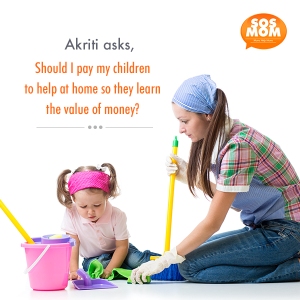




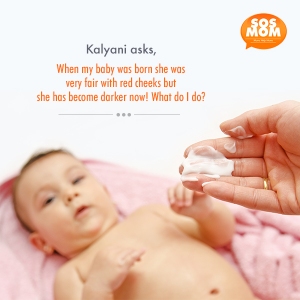



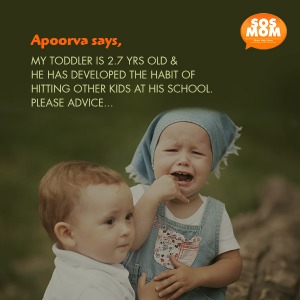







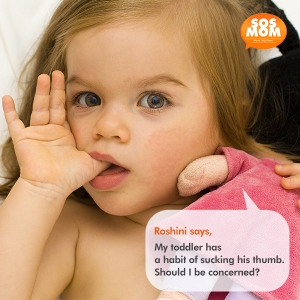



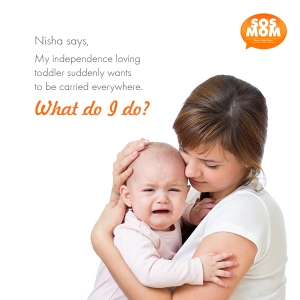





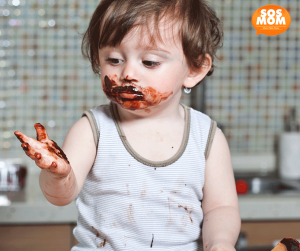
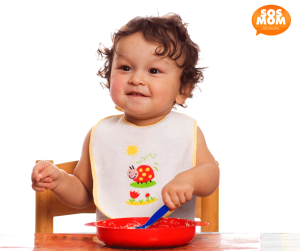




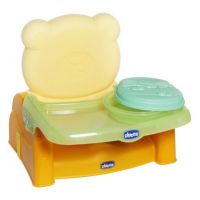

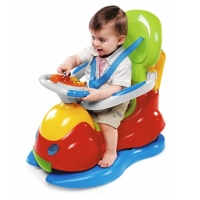

You must be logged in to post a comment.